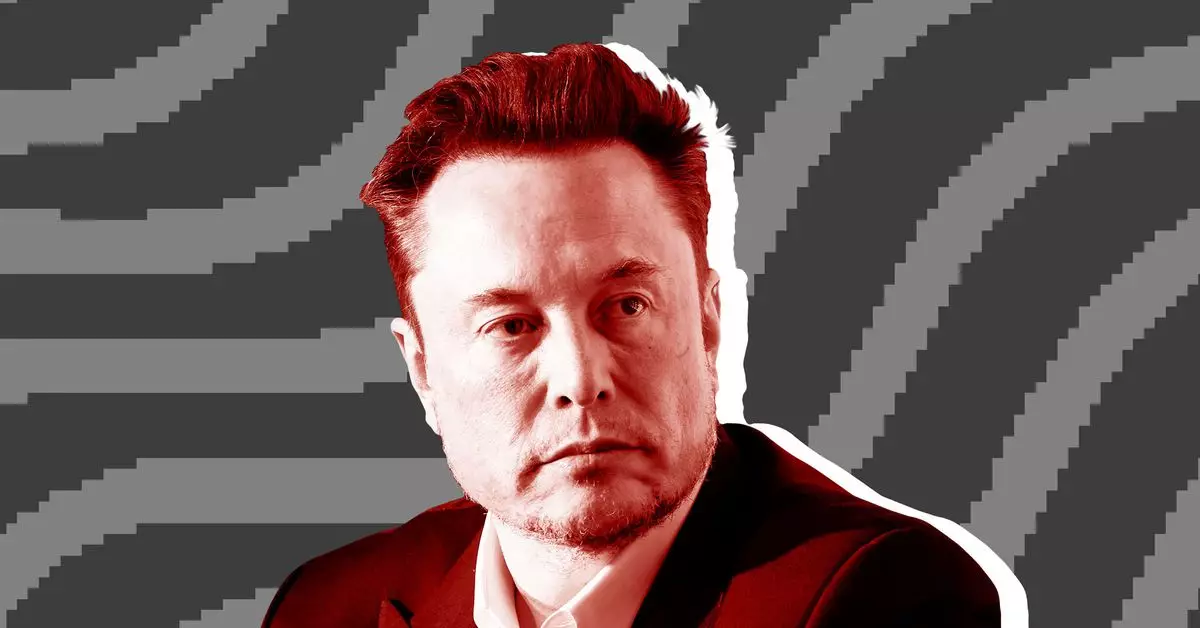The political landscape frequently oscillates between reform and partisanship, with new ideas often emerging from notable figures. The latest ambitious initiative, the Department of Government Efficiency (DOGE), aims to streamline government operations and cut unnecessary expenditures. With the appointment of tech magnate Elon Musk and rising political figure Vivek Ramaswamy, this endeavor not only signifies a drastic shift in the approach to governance but also raises questions regarding its feasibility and implications.
The inception of DOGE comes in the wake of President-elect Donald Trump’s proclamation that the department will function alongside the White House and the Office of Management and Budget. Its primary aim is to dismantle longstanding government bureaucracy, eradicate excessive regulations, and reform federal agencies. The expectation is nothing short of groundbreaking—a reimagining of government efficiency with a perspective grounded in corporate methodologies. This entrepreneurial approach is intended to foster a structural change that has long been the subject of debate among political thinkers and advocates for reform.
The nomenclature “DOGE” is particularly symbolic, as it cleverly plays on both the whimsical nature associated with cryptocurrency—specifically, Dogecoin, which Musk has famously endorsed—and the serious undertones of governmental reform. This duality presents an inviting proposition: merging the innovative spirit of the tech world with the often-stagnant apparatus of government.
Yet, amid the optimism that surrounds the announcement, skepticism looms. The proposed budget cuts may exceed $2 trillion—a monumental and, as critics assert, an impractical target. Historical precedence suggests that substantial fiscal reforms are seldom realized without public backlash. The defense budget and Social Security programs, two areas that are notoriously challenging to alter, may become battlegrounds for debate as Doge champions attempt to align their vision with economic reality.
Additionally, Musk and Ramaswamy face the inherent resistance from within established bureaucratic frameworks. Even with the promise of transformative strategies, there remains a significant question of whether truly radical changes can be embraced by institutions known for their entrenched practices. The struggle for a less bureaucratic government will likely encounter pushback from those who benefit from existing structures. It begs the question: will DOGE be met with the unanimous support necessary to enact these sweeping reforms?
Public perception plays a crucial role in shaping the department’s effectiveness. With the recent surge in the price of Dogecoin, largely fueled by Musk’s influence, the situational dynamics surrounding DOGE might evoke cynicism among constituents who suspect that trade-offs might favor business interests over public welfare. There exists the potential for a rift between the aspirations of DOGE and the realities faced by ordinary Americans.
Furthermore, the approach of keeping the operations “outside of Government” raises critical points regarding accountability. A department formed with high hopes must answer to the citizens—who may discount lofty promises if they see minimal tangible outcomes in their daily lives. Transparency and engagement with constituents will be paramount in averting the pitfalls of skepticism and potential disillusionment.
The formation of the Department of Government Efficiency under the charismatic leadership of Musk and Ramaswamy carries both promise and peril. Their vision of a streamlined, accountable government proposes a significant shift from traditional methods. This initiative offers an unprecedented opportunity for reform that could shape the future governance of the United States significantly.
However, this ambitious undertaking will face considerable hurdles, both in terms of enacting policy changes and addressing public concerns. The days ahead will determine if DOGE can indeed emerge as a transformative force in American governance or if it will succumb to the entrenched bureaucracy it aims to dismantle. The effectiveness of this experiment in government efficiency will ultimately rest on its execution and the enduring spirit of innovation that can bridge the gap between aspiration and reality.

